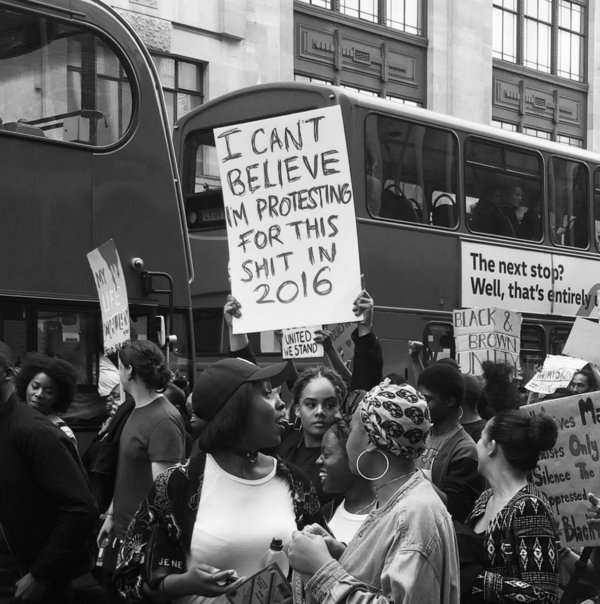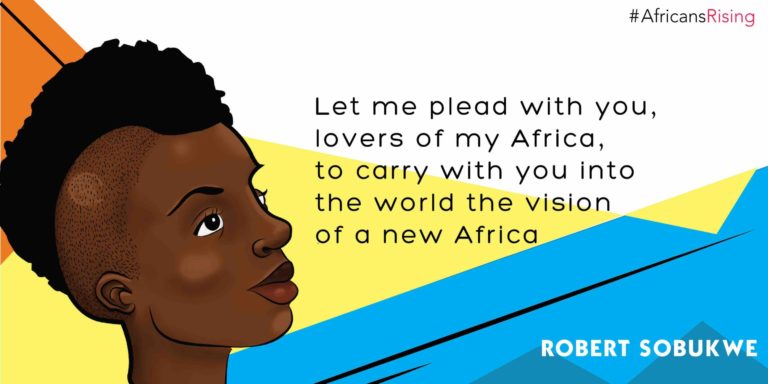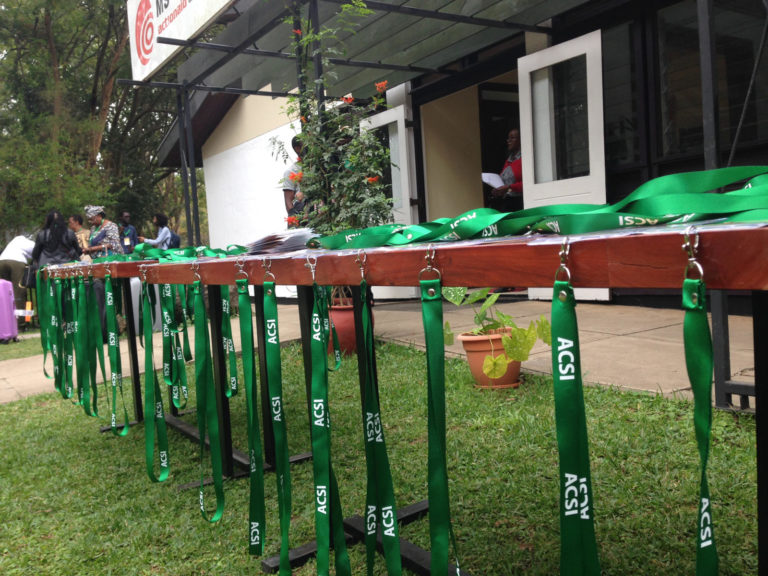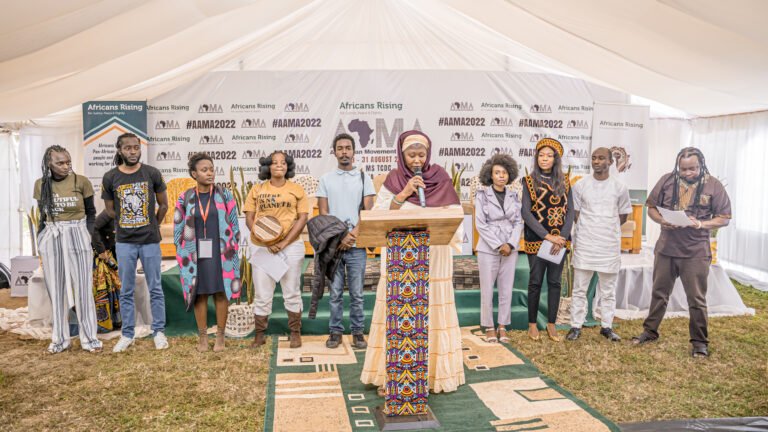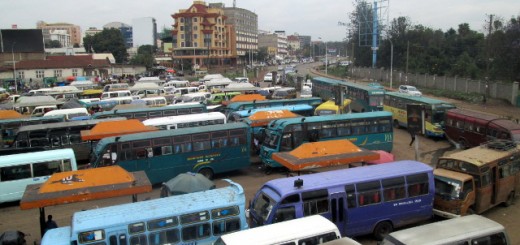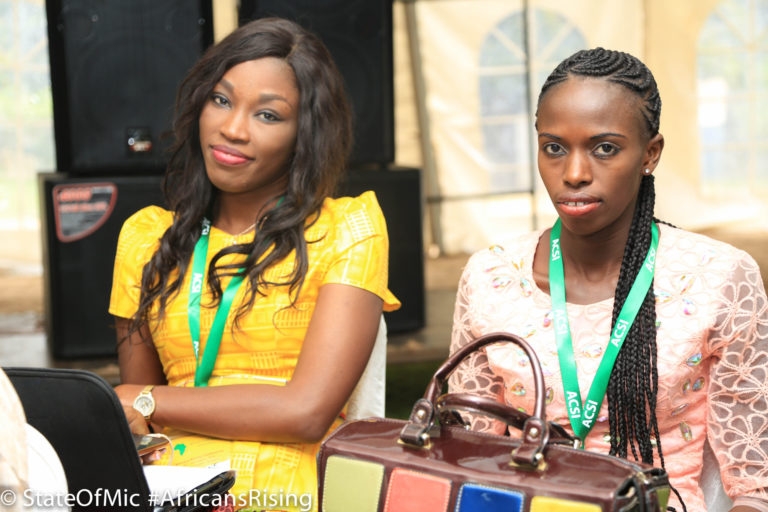Every year in March women have a double to celebrate themselves. March, also known as the women’s month, usually comes with two critical celebrations namely: International women’s day and the Status of Commission of Women (CSW68 ). Africans Rising (AR) joined the rest of the women in commemorating the International Women’s Day by organising a webinar on key concerns around Femicide. The webinar under the theme “Ending Femicide in Africa” brought together women and girls in all their diversity and multiple identities, civil society, government, women’s rights organisations, feminists, AR members including men promoting the rights of women.
The webinar started by contextualising and giving statistics of the severity of the femicide challenge in Africa where the moderator of the day, Africans Rising’s Engagement and Collaboration Regional Organizer, Ann Osamba acknowledged some loopholes and grey areas that continue to impede the work around femicide organising in the region. Despite the numerous legal frameworks both at national and regional levels, African women and girls in all their diversity continue to experience the impacts of femicide .
In her opening remarks Africans Rising Engagement and Collaboration Lead, Ancel Langwa said it is the women’s month and so the movement is celebrating women but has decided to focus on femicide so as to show solidarity to women who have lost their lives through femicide noting that African countries have experienced this in recent times. She further acknowledged the significance of the women’s rights month and also demonstrated how the webinar is connected to the Africans Rising’s work on solidarity hence the need to show solidarity through this webinar.
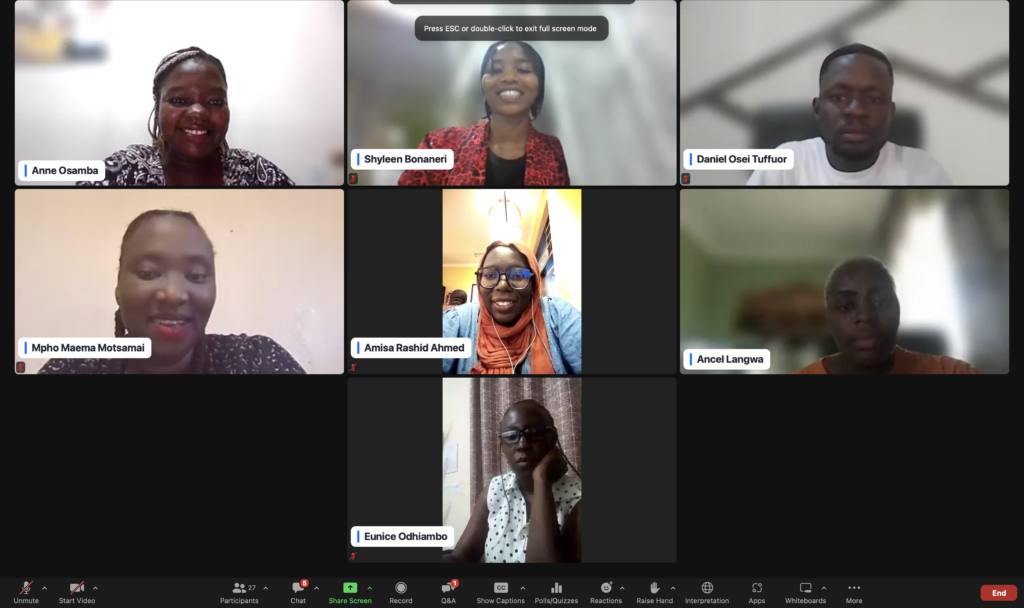
The panellists took turns to share their opinions on femicide. Shyleen Momanyi from Young Women Leadership Institute and also a representative of the KE Movement in Kenya known as #EndFemicideKe said the killing of women is out of extreme hate adding that collective action and solidarity will help amplify the efforts towards ending femicide. There has been an increase in reporting on femicide cases because of the outcry that has come from feminist activism specifically about the killing of women. “The data has been missing around femicide cases since they’ve been collectively put together as homicide”, she asserts. As a result of the recent feminist organising, they have continued to popularise the term femicide to acknowledge that it’s not just homicide but women getting killed because of extreme discrimination. She further said how amazed she was when she saw people coming out in radical ways and unapologetically to speak against femicide and even challenging the people on the online spaces that were very misogynistic, hateful and focused on victim blaming. She concluded by saying that women are not an homogenous group but rather come in different forms and identities, backgrounds and therefore, there are intersecting issues and forms of oppression and discrimination that exacerbate the vulnerability of women. The struggles of organising with limited or without funding was cited and recommended the need to be radical in resourcing for movements and called on movements to utilise platforms of influence, have a support system for the victims, safety and security for activists who are highly targeted.
The contribution from Matilda Phooko from Women’s rights department at the Centre for Human Rights – Pretoria university, centred on giving analytical statistics from the police and organising gaps in femicide. The report from South Africa Police Crime Statistics of the third quarter of 2023/24 showed 881 murders of women aged between 18 years and above. She was concerned by the way that data captured the number of women excluding the girls. She added that refusal to recognize gender based violence is in itself gender discrimination. She acknowledged that femicide is a rare phenomenon and despite the existence of the Maputo Protocol, there are no legal provisions for femicide. This has slowed down government response in South Africa when it comes to femicide. The data that is captured by the government compromises the quality of the interventions considering it does not acknowledge young girls in all the diversity including intersectionalities.
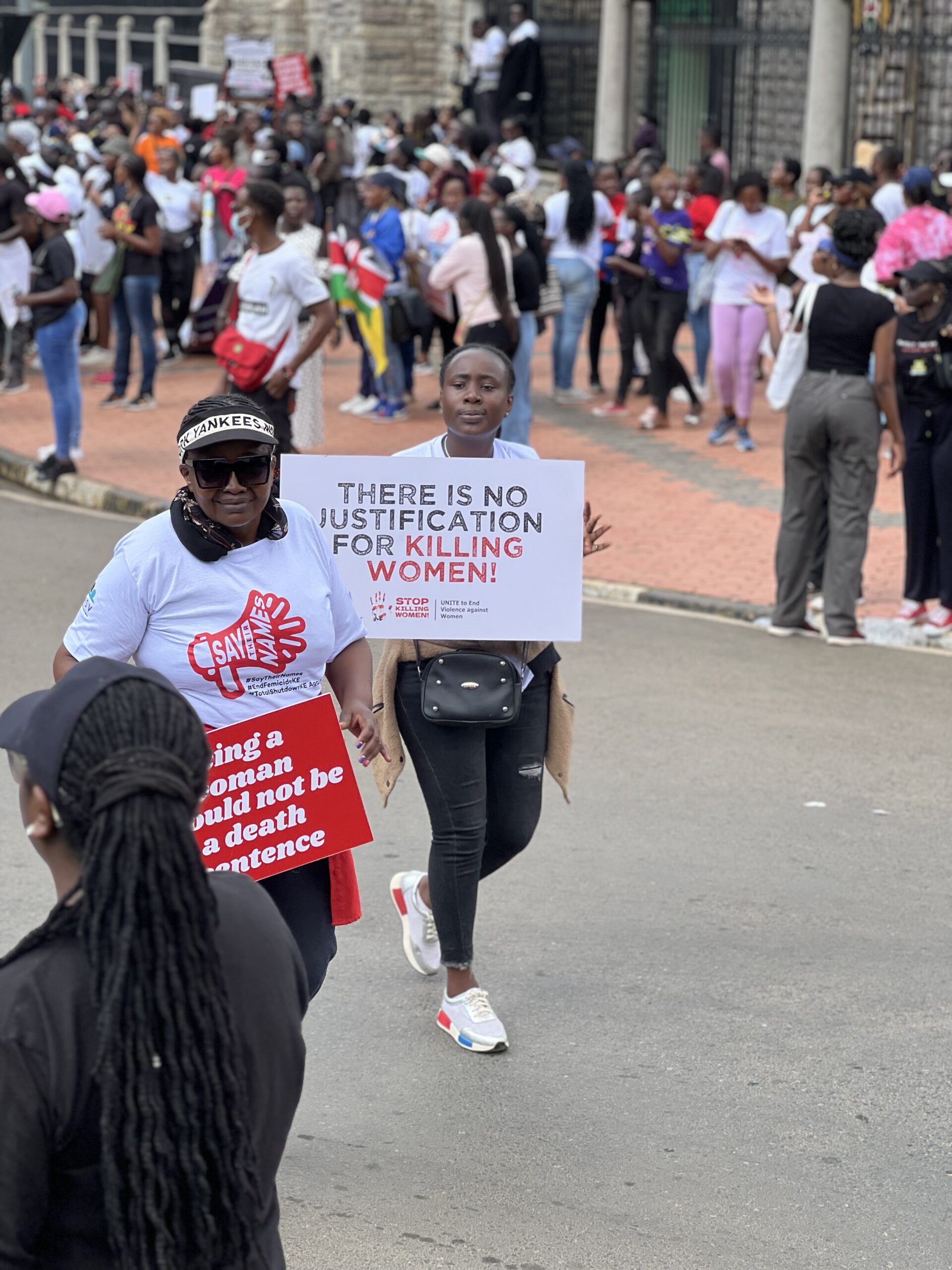 Speaking on the legal perspective, Mpho Maema Motsamai from Lesotho said that femicide in the country is a big issue and women in Lesotho were being abused and killed by family heirs till 1992 when the land act was amended allowing women to inherit their husband’s properties. Also in 2006 the legal capacity of married persons was amended and abolished the marital power and women had a say in their marriage and were consulted on important issues. In 2010 the land act equated women to their male counterparts and enabled them to own land just like men. She recalled one case of a lady who was killed by her spouse and how the activists came together for the first time to raise the issue of femicide saying they were dying at the hands of their partners. The cultural norms and construction have been a hindrance in reporting these cases as it is considered as a case of partners.
Speaking on the legal perspective, Mpho Maema Motsamai from Lesotho said that femicide in the country is a big issue and women in Lesotho were being abused and killed by family heirs till 1992 when the land act was amended allowing women to inherit their husband’s properties. Also in 2006 the legal capacity of married persons was amended and abolished the marital power and women had a say in their marriage and were consulted on important issues. In 2010 the land act equated women to their male counterparts and enabled them to own land just like men. She recalled one case of a lady who was killed by her spouse and how the activists came together for the first time to raise the issue of femicide saying they were dying at the hands of their partners. The cultural norms and construction have been a hindrance in reporting these cases as it is considered as a case of partners.
Daniel Osei Tuffuor from Ghana and the Executive Chair of the Young Women Congress Network focusing on the gender aspect said the cause of femicide is power factor and men who are the perpetrators of femicide can also be the solution. Men need to understand that women are human beings with rights just like them. As such men have a role to play in ending femicide. It’s important for men to understand that the women empowerment agenda is not to make women more powerful than men but to raise women to a level where they can be counterparts to men. Women dominate the population and if they are raised to a level where they can also bring their equitable contribution to the table, including in leadership positions and make contributions to the development agenda then that will solve the major part of the problem, he said.
Honourable Miraj Abdilahi, a nominated Senator in Kenya said perpetrators of femicide need to be punished by the law and emphasised that the judicial systems should start pushing cases of femicide with the urgency that it deserves rather than letting them drag on in court and setting the criminals free. In conclusion she said we need to have legislation and the crime of femicide in the penal code of every country and also at the AU Summit.
Amisa Rashid Ahmed a mental health practitioner and psychologist from Nairobi, Kenya spoke on supporting women who have suffered abuse and said they are bound to be violent if they are not psychologically guided. She noted that individuals who have experienced trauma struggle a lot with regulating their emotions which leads to violence behaviours especially in intimate relationships.
Said from Somalia said Somalia is a country that leads in the cases of femicide and violence against women. The Somalian government lacks effective laws and policies to protect women and cases of female violence are under-reported due to poor governance and lack of policies to deal with gender-based violence. He cited a few cases of femicide which include the most recent brutal killing of three women in which two were expectant and were murdered by their husbands leading to a public outcry and call for action. In another case, a man lynched his 28 year old wife after an argument. In Mogadishu a 22 year old was stabbed by her husband three weeks ago. The ongoing wars have also made it difficult for protection of women to be implemented. However hotline services have been provided to enable women to report cases of gender based violence.
The webinar was such an eye opener and some of the lessons that can be drawn around femicide in Africa is the weak legal architecture for femicide work, the need to strengthen reporting and incapacities in data collections, the need to connect the struggles on women’s rights and movement building towards ending femicide.
At the end of the discussion, the following recommendations were drawn up:
- Radical resource mobilisation for movement to support them in addressing women’s needs.
- Creation of spaces to help discuss issues and concerns on femicide.
- Harmonisation and integragation of data on femicide.
- Interventions to tackle femicide broadly and acknowledge the stages girls go through to become women.
- Socialisation and instilling of norms.
- Implementation of effective laws and policies to protect women.
- Hotline services to be provided to enable women to report cases of gender based violence.

